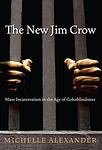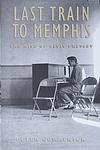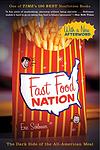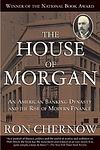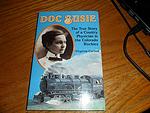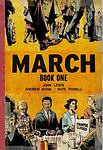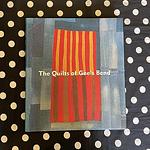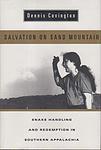The Greatest "Nonfiction, American History" Books Since 1990
Click to learn how this list is calculated.
This list represents a comprehensive and trusted collection of the greatest books. Developed through a specialized algorithm, it brings together 286 'best of' book lists to form a definitive guide to the world's most acclaimed books. For those interested in how these books are chosen, additional details can be found on the rankings page.
Genres
The "American History" category encompasses a broad range of books that delve into the events, figures, and forces that have shaped the United States from its pre-colonial days to the present. This genre includes works on pivotal moments such as the American Revolution, Civil War, and civil rights movements, as well as studies of political, social, and cultural developments across various eras. It covers biographies of influential leaders, analyses of policy changes, and examinations of societal shifts. Whether providing comprehensive overviews or focusing on specific incidents or decades, books in the American History category aim to illuminate the complexities of the nation's past, offering readers insights into the events that have defined the American experience and the context for its ongoing evolution.
Countries
Date Range
Reading Statistics
Click the button below to see how many of these books you've read!
Download
If you're interested in downloading this list as a CSV file for use in a spreadsheet application, you can easily do so by clicking the button below. Please note that to ensure a manageable file size and faster download, the CSV will include details for only the first 500 books.
Download-
1. The Immortal Life of Henrietta Lacks by Rebecca Skloot
The book tells the story of Henrietta Lacks, a poor African American tobacco farmer whose cells, taken without her knowledge in 1951, became one of the most important tools in medicine, vital for developing the polio vaccine, cloning, gene mapping, and more. Henrietta's cells have been bought and sold by the billions, yet she remains virtually unknown, and her family can't afford health insurance. The book explores the collision between ethics, race, and medicine; of scientific discovery and faith healing; and of a daughter consumed with questions about the mother she never knew.
-
2. The Devil In The White City by Erik Larson
This book intertwines the true tales of two men during the 1893 Chicago World's Fair: Daniel H. Burnham, the architect responsible for the fair's construction, and H.H. Holmes, a serial killer masquerading as a charming doctor. The narrative alternates between the story of Burnham, his challenges and successes in building the fair, and the chilling story of Holmes, who used the fair to lure his victims to their death. It's a vivid portrayal of the Gilded Age and a chilling exploration of one of America's first known serial killers.
-
3. Up in the Old Hotel by Joseph Mitchell
"Up in the Old Hotel" is a collection of essays that paints a vivid picture of New York City from the 1930s to the 1960s. The stories introduce a rich tapestry of characters, from street preachers and gypsies to oystermen and bar regulars, each with their own unique history and perspective. The book captures the essence of the city and its inhabitants in a way that is both deeply personal and universally relatable, providing an intimate look at a bygone era.
-
4. The Warmth Of Other Suns by Isabel Wilkerson
"The Warmth of Other Suns" is a powerful and deeply moving narrative that chronicles the Great Migration, a significant event in American history that saw millions of African Americans leave the South in search of better opportunities and freedom from racial oppression. Through the compelling stories of three individuals, the book explores the challenges, triumphs, and sacrifices made by these courageous migrants as they embarked on a journey to find a new life in the North and West, ultimately reshaping the social and cultural landscape of America.
-
5. Team of Rivals: The Political Genius of Abraham Lincoln by Doris Kearns Goodwin
This book explores the political acumen of Abraham Lincoln, focusing on how he assembled his cabinet from political adversaries, many of whom initially dismissed him for his perceived lack of experience and ungainly appearance. The narrative delves into how Lincoln used his rivals' talents to navigate the tumultuous times of the Civil War, maintaining unity and leading the nation towards the abolition of slavery. It underscores Lincoln's extraordinary ability to turn rivals into allies, demonstrating his leadership and his profound impact on American history.
-
6. The Looming Tower by Lawrence Wright
"The Looming Tower" is a comprehensive historical examination of the events leading up to the 9/11 terrorist attacks on the United States. It delves into the origins of Al-Qaeda, the rise of Osama bin Laden, and the failure of U.S. intelligence agencies to prevent the attacks. The narrative is extensively researched and provides a detailed account of Islamic fundamentalism, the complex politics of the Middle East, and the role of the United States in the region. The book also explores the personal stories of key figures on both sides of the conflict.
-
7. In the Heart of the Sea by Nathaniel Philbrick
This historical narrative tells the true story of the 19th-century whaleship Essex, which was rammed and sunk by a sperm whale in the South Pacific. Stranded thousands of miles from land, the crew of the Essex was pushed to their limits and forced to do the unthinkable to stay alive. The tale explores the harrowing ordeal of these men through their long journey at sea, their encounters with nature's fury, hunger, disease, and their own fear and despair.
-
8. Rising Tide by John Barry
"Rising Tide" is a historical account that explores the impact of the Great Mississippi Flood of 1927 on American society. The narrative details the catastrophic event and the subsequent political and social changes that occurred, including the shift in African American voting patterns from the Republican to the Democratic party. The book also delves into the engineering efforts to control the Mississippi River and the environmental consequences of such efforts.
-
9. The New Jim Crow by Michelle Alexander
"The New Jim Crow" is a thought-provoking and eye-opening book that examines the deeply ingrained racial bias within the American criminal justice system. Drawing on extensive research and personal anecdotes, the author explores how the War on Drugs has disproportionately targeted and marginalized Black communities, leading to a modern-day system of racial control and oppression. This powerful critique challenges readers to confront the systemic racism that continues to perpetuate inequality and injustice in the United States.
-
10. A Midwife's Tale by Laurel Thatcher Ulrich
"A Midwife's Tale" is a historical account of a midwife's life in the late 18th and early 19th centuries, based on her detailed diary entries. The book offers a unique perspective on the daily life, medical practices, and social and economic conditions of the time, while highlighting the significant role that women played in the community, despite their limited rights and opportunities. The narrative also provides a rare insight into the realities of childbirth and women's health during this period.
-
11. Evicted: Poverty and Profit in the American City by Matthew Desmond
This book provides an in-depth look at the housing crisis in America, focusing on eight families in Milwaukee who are struggling to keep a roof over their heads. The author explores the role of eviction in perpetuating poverty, illuminating the business of landlords and the harsh reality of tenants in impoverished neighborhoods. The book offers a close examination of the intersection between profit and poverty, revealing how both are intricately linked in the American housing market.
-
12. The 9/11 Commission Report by 9/11 Commission
This book is a comprehensive, detailed account of the events leading up to the September 11, 2001 terrorist attacks on the United States, the attacks themselves, and the immediate aftermath. It was compiled by a bipartisan commission and offers an in-depth analysis of the systemic failures that allowed these attacks to occur. The report also provides recommendations for preventing future terrorist attacks, emphasizing the need for improved intelligence and security measures.
-
13. Last Train to Memphis by Peter Guralnick
"Last Train to Memphis" chronicles the early life and rise to fame of a young musician from Tupelo, Mississippi. It details his humble beginnings, his love for gospel music, and his eventual rise to stardom as a rock 'n' roll icon. The book also explores his complex relationships, his military service, and his struggle with fame, providing a comprehensive and intimate look at a cultural icon's journey to stardom.
-
14. Killing The Black Body by Dorothy E. Roberts
This book is a critical examination of the ways in which the reproductive rights of African American women have been controlled and violated throughout American history. It delves into the intersection of race, gender, and class, revealing how black women's bodies have been subjected to coercive policies and practices, from the era of slavery to contemporary issues of forced sterilization and unequal access to reproductive healthcare. The work challenges readers to confront the systemic racism embedded in America's reproductive policies and to recognize the ongoing struggle for autonomy and justice faced by black women in the realm of reproductive freedom.
-
15. Fast Food Nation by Eric Schlosser
This book is an in-depth exploration of the fast food industry in America, examining its history, business practices, and impact on society. The author investigates the industry's influence on America's economy, health, and culture, revealing disturbing facts about the production process, the exploitation of workers, and the health risks associated with fast food consumption. The book serves as a critique of the fast food industry and its detrimental effects on American society.
-
16. The House of Morgan by Ron Chernow
"The House of Morgan" is a comprehensive history of the Morgan banking dynasty, tracing its origins from the 19th century to its present-day status. The book explores the family's influence on American and international finance, politics, and society, highlighting key figures and events. It provides an in-depth look at the workings of high finance and the power dynamics within the Morgan family, offering insights into the world of banking and the people who shaped it.
-
17. Ella Baker And The Black Freedom Movement by Barbara Ransby
This book is a comprehensive biography that chronicles the life and influence of a prominent civil rights activist who played a pivotal role in some of the most influential organizations of her time, including the NAACP, Martin Luther King Jr.'s Southern Christian Leadership Conference, and the Student Nonviolent Coordinating Committee. It delves into her commitment to grassroots organizing and participatory democracy, showcasing her belief in the power of the people to instigate social change. The narrative highlights her behind-the-scenes work, her emphasis on collective leadership, and her dedication to fighting racial and economic injustice, making a strong case for her as one of the most important, yet often overlooked, leaders of the civil rights movement.
-
18. Doc Susie: The True Story Of A Country Physician In The Colorado Rockies by Virginia Cornell
This book chronicles the inspiring life of a pioneering female physician who, in the early 20th century, left her comfortable city life to practice medicine in the harsh, unforgiving environment of the Colorado Rockies. Facing the challenges of isolation, gender bias, and limited medical resources, she earned the trust and respect of the rugged community through her tireless dedication, compassion, and medical skill. Her story is a testament to the indomitable spirit of an extraordinary woman who overcame societal constraints and personal adversities to serve the needs of her rural patients.
-
19. Eleanor Roosevelt, Volume One: 1884-1933 by Blanche Wiesen Cook
This biography provides an intimate and detailed look into the life of one of the most influential women in American history, a former First Lady who redefined the role with her active participation in social causes. The book delves into her personal struggles, including a challenging marriage and the search for her own identity, as well as her public achievements in human rights, her work with the United Nations, and her tireless advocacy for the underprivileged. Drawing from a wealth of sources, the narrative paints a portrait of a woman whose strength, intelligence, and compassion left a lasting impact on the world stage.
-
20. A Woman's Civil War by Cornelia Peake McDonald
This book is a personal account of a woman's experiences during the American Civil War, offering a detailed and poignant perspective on the hardships and turmoil of the era. The narrative is drawn from the diaries and letters of the author, who lived through the conflict and witnessed its impact on her family, community, and way of life. Her writing provides a unique window into the domestic and social challenges faced by women, as well as the broader political and military upheavals of the time, capturing the emotional and physical landscape of a country divided by war.
-
21. March: Book One by John Lewis
"March: Book One" is a graphic novel that depicts the early life of a key figure in the American civil rights movement. Raised in rural Alabama, he grows up inspired by the activism surrounding the Montgomery Bus Boycott and the words of Martin Luther King Jr., which sets him on the path of nonviolent protest. The novel highlights his commitment to the fight for equal rights and his journey from a young boy on a farm to one of the key figures in the civil rights movement.
-
22. The Quilts Of Gee's Bend by William Arnett, Alvia Wardlaw, Jane Livingston, John Beardsley
This book celebrates the remarkable artistic legacy of a small, isolated African American community in Alabama, known for its unique and vibrant quilts that have been crafted by generations of women. It delves into the history, culture, and aesthetics of these quilts, which are characterized by bold patterns, improvisational designs, and a resourceful use of materials. The publication accompanies an exhibition and serves as a comprehensive examination of these works, exploring their visual affinities with modern art and their embodiment of a rich tradition of craftsmanship and creativity within the context of the American South's social and political landscape.
-
23. Zeitoun by Dave Eggers
The book is a non-fiction account of a Syrian-American contractor named Zeitoun who decides to stay in New Orleans during Hurricane Katrina. Despite the chaos, he paddles around the city in a canoe, helping those he can. However, he is arrested and accused of looting, leading to a harrowing experience in prison. The narrative explores themes of family, survival, and the breakdown of civil liberties in times of crisis.
-
24. Alexander Hamilton by Ron Chernow
"Alexander Hamilton" by Ron Chernow is a comprehensive biography of one of America's founding fathers. The book chronicles Hamilton's life from his impoverished childhood in the Caribbean to his rise as a key figure in the American Revolution and his role in shaping the country's early government. Chernow delves into Hamilton's complex personality, his political and economic philosophies, and his tumultuous personal life, including his infamous affair with Maria Reynolds. The biography sheds light on Hamilton's lasting impact on American politics and economics, and his legacy as one of the most influential figures in the nation's history.
-
25. Salvation on Sand Mountain by Dennis Covington
The book is a personal journey of a journalist who, while covering a murder trial of a snake-handling preacher, becomes deeply involved in the culture of snake handling in Southern Appalachia. He explores the history and religious significance of snake handling, while also wrestling with his own faith and the nature of religious ecstasy. The narrative is a blend of true crime, personal memoir, and religious exploration.
Reading Statistics
Click the button below to see how many of these books you've read!
Download
If you're interested in downloading this list as a CSV file for use in a spreadsheet application, you can easily do so by clicking the button below. Please note that to ensure a manageable file size and faster download, the CSV will include details for only the first 500 books.
Download







